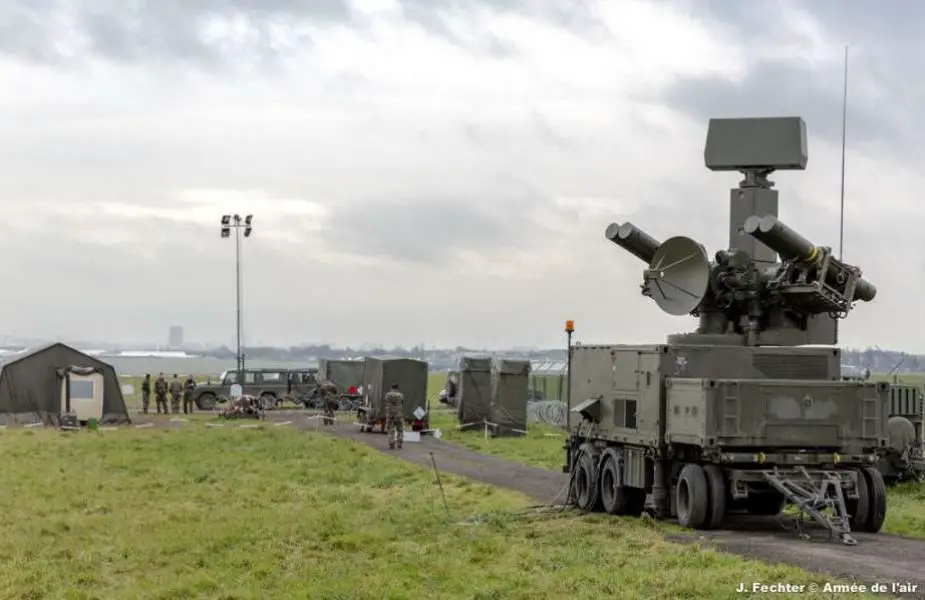Breaking News
Breaking News: Chechen Special Forces Destroy First French Crotale NG Air Defense System in Ukraine.
Major General Apty Alaudinov, the commander of the Chechen Akhmat Special Forces, working under the umbrella of the National Guard of Russia, has reported via its telegram account the destruction of a French-donated Crotale NG air defense missile system. According to the information disclosed by Major General Alaudinov, the incident took place in the Kursk direction, marking the first time that this French advanced air defense system has been reportedly destroyed in combat.
Follow Army Recognition on Google News at this link

French Air Force Crotale NG air defense missile system. (Picture source: French Air Force)
The Crotale NG (Nouvelle Génération – New Generation), a modernized version of the French-made Crotale air defense system, was provided to Ukraine as part of the Western military aid packages to increase the country’s defense capabilities. France donated two Crotale NG batteries to Ukraine in November 2022, as part of its broader commitment to support Ukraine's defense against Russian invasion.
The Crotale NG is a highly advanced air defense missile system designed to engage and destroy a wide range of aerial threats, including low-altitude aircraft, helicopters, drones, and cruise missiles. Equipped with a state-of-the-art radar and infrared tracking system, the Crotale NG can detect, track, and engage multiple targets simultaneously. It has an effective range of up to 15 km and can engage targets at altitudes ranging from very low levels up to 9,000 m. The system's high precision and rapid response capabilities make it particularly effective in defending against fast-moving, low-altitude threats in complex combat environments.
The destruction of the Crotale NG system was reportedly carried out by an FPV (First Person View) drone, a type of unmanned aerial vehicle that allows the operator to control the drone from a first-person perspective, using a camera mounted on the drone. FPV drones are increasingly used in modern warfare due to their versatility and ability to precisely strike targets. These drones are often equipped with explosives and can be flown directly into enemy positions or equipment, making them a highly effective tool in asymmetric warfare. FPV drones have seen a dramatic rise in the Russian-Ukrainian conflict, as they offer a low-cost, high-impact solution to taking out enemy assets.
In the video released on his Telegram channel, Major General Alaudinov detailed how the Crotale NG was initially deployed to intercept Russian helicopters that were poised to strike the area of Martynovka.
The Akhmat special forces, commanded by Major General Apty Alaudinov, are a Chechen military unit that operates under the Russian National Guard. Named after Akhmad Kadyrov, the former president of the Chechen Republic and father of current leader Ramzan Kadyrov, the Akhmat special forces are known for their elite training and involvement in some of Ukraine's most intense combat operations. They have gained a reputation for their effectiveness in urban warfare and their loyalty to the Kremlin, playing a crucial role in Russia’s regional military strategy.
The destruction of the Crotale NG air defense missile system by an FPV drone highlights the evolving nature of the conflict in Ukraine, where traditional and advanced military equipment is increasingly vulnerable to newer, more agile forms of attack. This incident underscores the growing threat posed by FPV drones on the battlefield, as they can neutralize even the most sophisticated air defense systems.
As the conflict continues in Ukraine, the proliferation and deployment of FPV drones present a significant challenge for both sides. These small, hard-to-detect devices are capable of causing disproportionate damage to critical military assets. The successful strike against the Crotale NG system raises concerns about the effectiveness of traditional air defense mechanisms in the face of rapidly advancing drone technology, which is likely to play an even more prominent role in future military engagements.
























